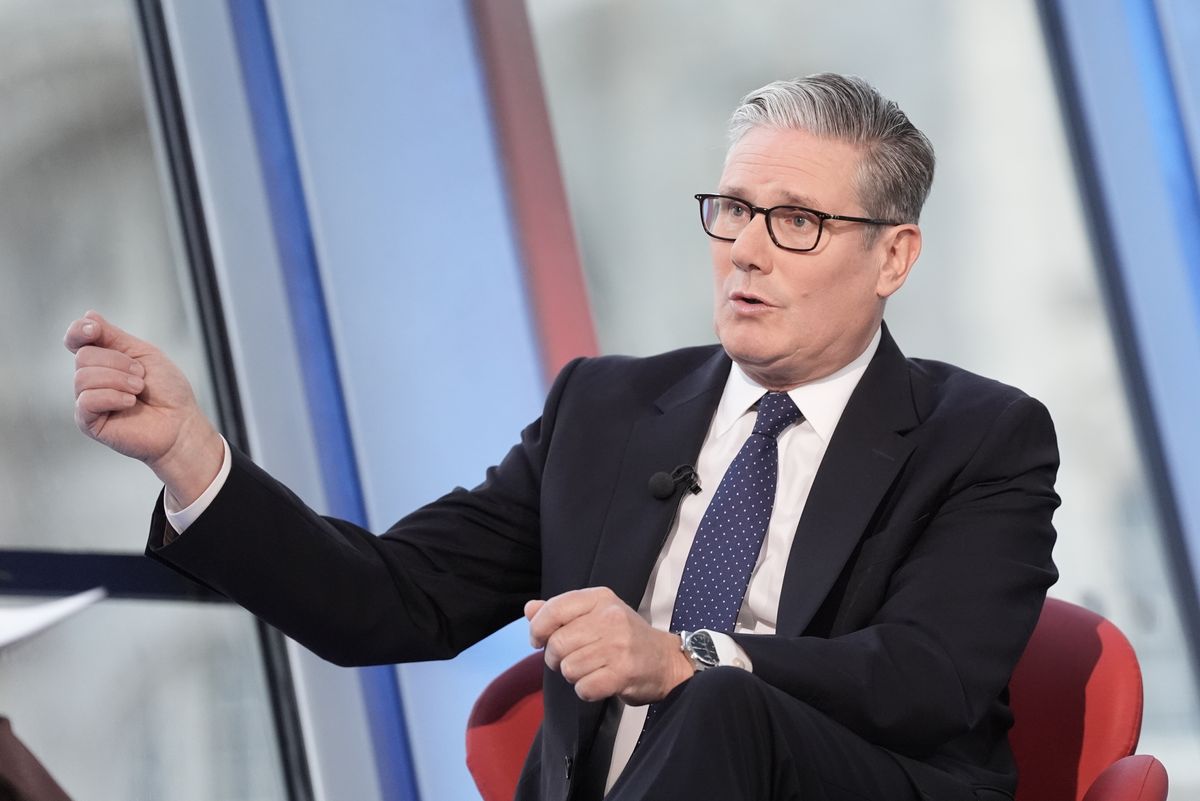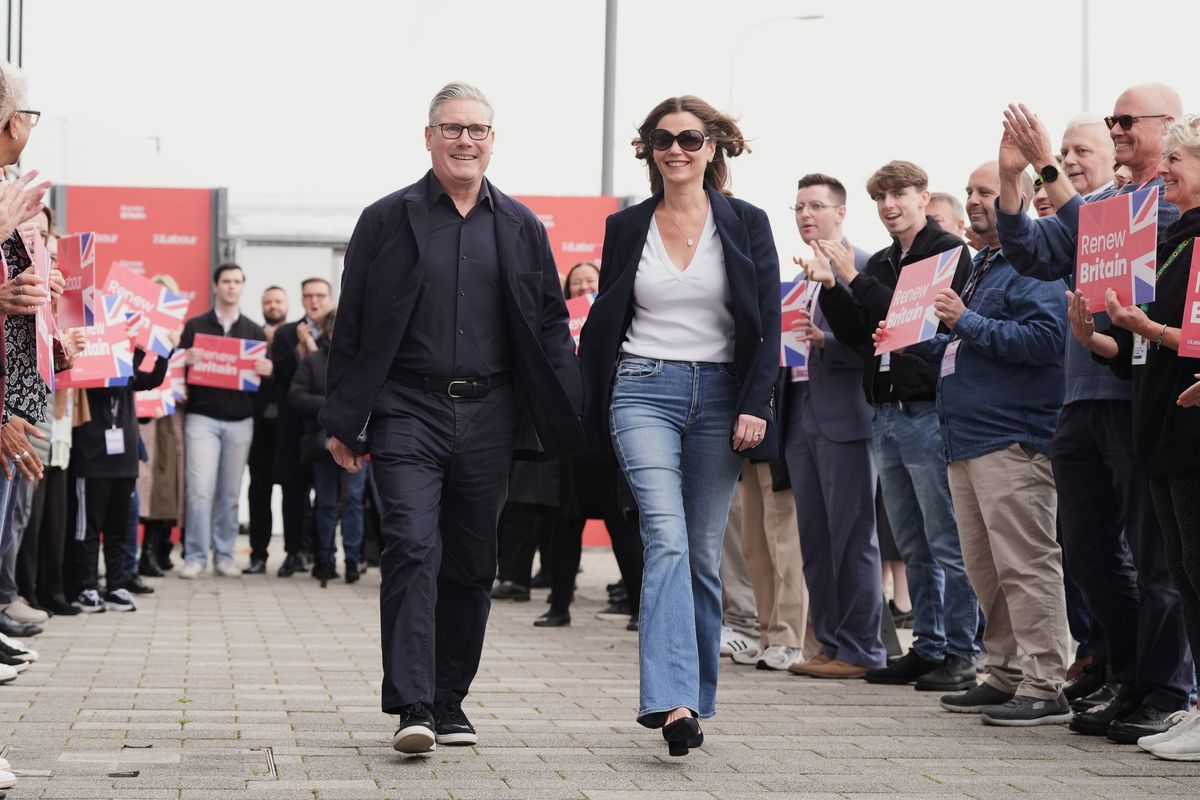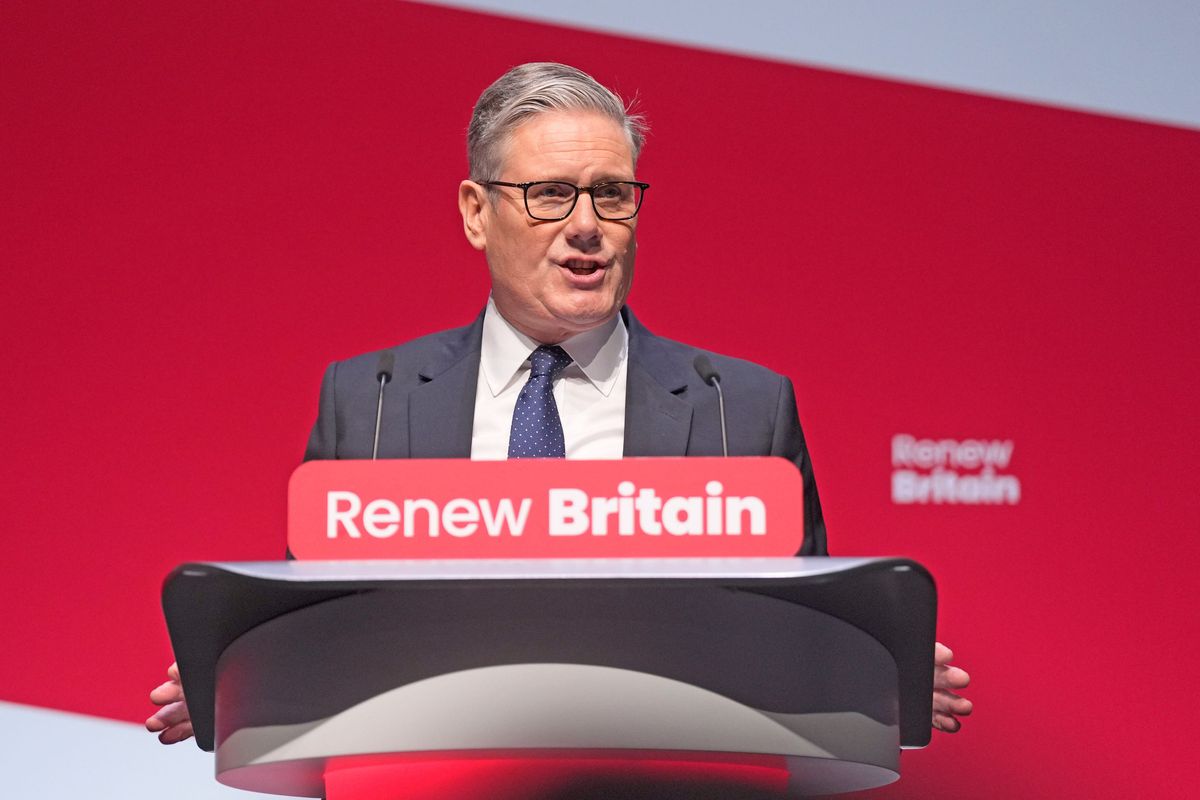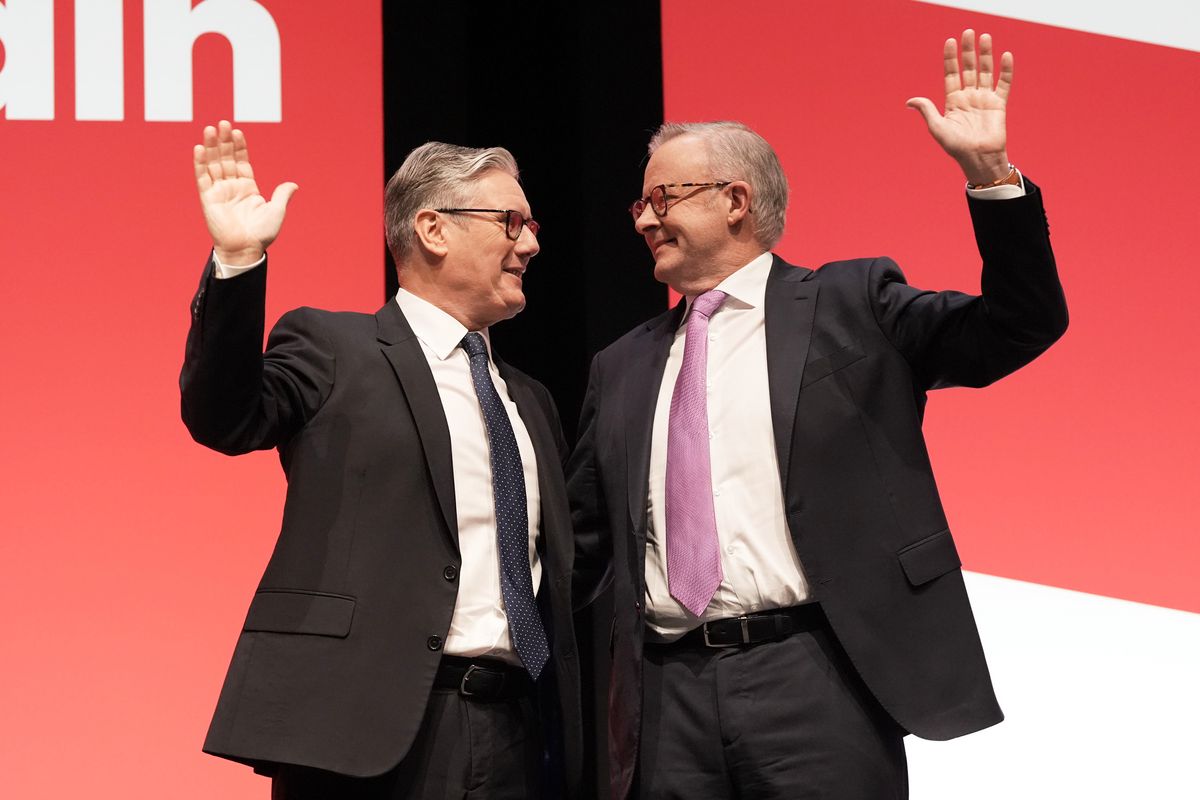LIVERPOOL, England (AP) — Keir Starmer never had much of a political honeymoon. Now some members of his political party are considering divorce.
Little more than a year after winning power in a landslide, Britain’s prime minister is fighting to keep the support of his party, and to fend off Nigel Farage, whose hard-right Reform UK has a consistent lead in opinion polls.
The next election is as much as four years away, but as thousands of Labour Party members gathered Sunday for their annual conference beside the River Mersey in Liverpool, many lawmakers were anxious — and a potential leadership rival to Starmer has emerged in Andy Burnham, the ambitious mayor of Manchester.
Starmer shrugged off the discontent, telling the BBC that “in politics, there are always going to be comments about leaders and leadership” and insisting the government had “achieved great things in the first year.”
“I just need the space to get on and do what we need to do,” he said.
But Tim Bale, professor of politics at Queen Mary University of London, said the party’s mood is “febrile.”
“They’ve only been in government a year and they’ve got a big majority, but most voters seem to be quite disappointed and disillusioned with the government,” he said. “And they also have a very low opinion of Keir Starmer.”
Government rocked by setbacks
Since ending 14 years of Conservative rule with his July 2024 election victory, Starmer has struggled to deliver the economic growth he promised. Inflation remains stubbornly high and the economic outlook subdued, frustrating efforts to repair tattered public services and ease the cost of living.
A global backdrop of Russia’s war in Ukraine and U.S. President Donald Trump’s tariffs hasn’t helped. Even though Britain managed to secure a trade deal easing import duties on some U.K. goods, the autumn budget statement in November looks set to be a grim choice between tax increases and spending cuts — maybe both.
In his big conference speech on Tuesday, Starmer will try to set out a sweeping vision to energize Labour’s grassroots, something critics say has been lacking under his managerial command. He’ll also seek to persuade party members, and voters, that he has learned from his mistakes and stabilized a sometimes wobbly government.
In the last few weeks Starmer has lost his deputy prime minister, Angela Rayner, who quit over a tax error on a home purchase, and fired Britain’s ambassador to Washington, Peter Mandelson, after revelations about his past friendship with convicted sex offender Jeffrey Epstein. There have also been several exits from Starmer’s backroom team, adding to a sense of disarray.
Now Burnham, who served in past Labour governments, is emerging as a nascent rival. The Manchester mayor says lawmakers have approached him about a leadership bid, even though he is not currently a member of Parliament.
Burnham said Sunday that he wanted to “launch a debate at this conference about direction (of the party) and getting a plan to defeat Reform.
“I do think we need a story for this government that connects more with people,” he said, adding those calling for “simplistic statements of loyalty” to Starmer are “underestimating the peril the party is in.”
Starmer’s dilemma is that he faces opposition on multiple issues from both right and left. Outside the conference venue in Liverpool, some 200 miles (32 kilometers) northwest of London, scores of people protested a government plan for digital ID cards, while a separate demonstration opposed the government’s decision to ban the activist group Palestine Action as a terrorist organization.
Immigration is a flashpoint
The threat posed by Reform was a top issue among Labour delegates in Liverpool. Farage’s anti-establishment, anti-immigrant message, with its echoes of President Donald Trump’s MAGA movement, has homed in on the issue of thousands of migrants in small boats arriving in Britain across the English Channel.
More than 30,000 people have made the dangerous crossing from France so far this year despite efforts by authorities in Britain, France and other countries to crack down on people-smuggling gangs.
Far-right activists have been involved in protests outside hotels housing asylum-seekers across the U.K., and a march organized by anti-immigration campaigner Tommy Robinson attracted more than 100,000 people in London this month.
Starmer has acknowledged voters’ concerns about migration but condemned Robinson’s anti-immigrant rhetoric and accused Farage of sowing division with plans to deport immigrants who are in the U.K. legally that Starmer called “racist” and “immoral.”
Farage’s party has only five lawmakers in the 650 seat House of Commons, and Labour has more than 400. Nonetheless Starmer said Reform, and not the main opposition Conservatives, is now Labour’s chief opponent.
In a speech on Friday, he said the defining political battle of our times is between a “politics of predatory grievance” that seeks to foster division and “patriotic renewal … underpinned by the values of dignity and respect, equality and fairness.”
“There’s a battle for the soul of this country now as to what sort of country we want to be,” he said.
The government does not have to call an election until 2029, but pressure will mount on Starmer if, as many predict, Labour does badly in local and regional elections in May.
Bale said that, for now, the best policy for the government is to “keep calm and carry on.”
“Over time, greater investment in public services, in particular the health service, will probably begin to show some fruit,” he said. “The economy may turn around as the government’s policies have some effect. They may get the small boats problem under control over time.
“But it really is a case of just kind of waiting it out — and perhaps hoping that Nigel Farage and Reform’s bubble will burst.”
By JILL LAWLESS
Associated Press





